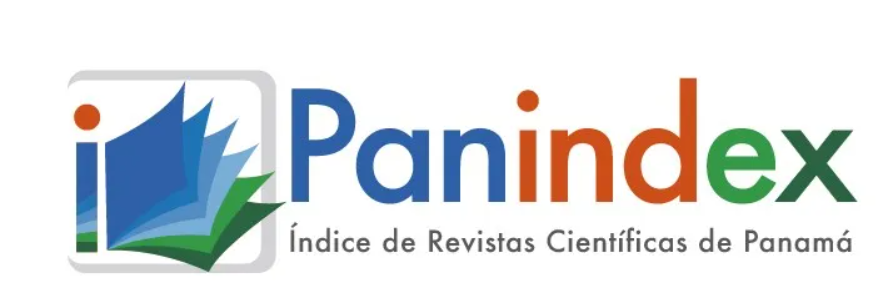The content of the publications and the links suggested in them are the sole responsibility of the authors and not of the METROPOLITAN UNIVERSITY OF EDUCATION, SCIENCE AND TECHNOLOGY (UMECIT) or CATHEDRA magazine. They are protected by international copyright laws just as the UMECIT and CATHEDRA logos, hence their reproduction is totally prohibited
This work is licensed under a Creative Commons Attribution-NonCommercial-NoDerivatives 4.0 International License.
The authors maintain the copyright and transfer the right of the first publication to the journal, with the article registered with Creative Commons Attribution-NonCommercial-NoDerivatives License, which allow others They can download the works published in this magazine and share them with other people, as long as their authorship is recognized, but they cannot be changed in any way nor can they be used commercially.
Authors are recommended to include their work in social networks such as Researchgate and institutional repositories once the article or visible fact has been published on the journal page, without forgetting to include the digital document identifier and the name of the journal.



Abstract
Forensic Entomology is a scientific discipline that serves as support in the development of research in criminalistics and forensic sciences; in order to estimate the possible moment of death, if the corpse was moved, among other important details. This is possible by knowing the state of decomposition of the corpse, the identification of species of insects and other arthropods, as well as the determination of the number of specimens and the stages of development. Although in other latitudes the development of forensic sciences has made significant progress, some limitations are still faced, due to various factors, such as weather, if the victim died of poisoning, among others. In Latin America, even with an offer of university careers in Criminalistics and Forensic Sciences, more efforts are needed to investigate the matter. This paper is a review about the research carried out to date on Forensic Entomology in the Republic of Panama; which allows to present the most outstanding contributions in this area of knowledge. There are experiences occupying pig corpses, pig entrails, rat carcasses and even human liver; in different environments in Panama. These studies confirmed the importance of the Diptera order, especially the family Calliphoridae; followed by the orders Coleoptera and Hymenoptera.
Keywords
References
Begoña, I. (2015). Sucesión de la entomofauna cadavérica en un medio montañoso del Sureste de la Península Ibérica. [Tesis Doctoral, Universidad de Murcia, ES]. http://hdl.handle.net/10201/47091
Bermúdez, S., y Pachar, J. (2010). Artrópodos asociados a cadáveres humanos en Ciudad de Panamá, Panamá. Revista Colombiana de Entomología, 36(1), 86-89. http://dx.doi.org/10.25100/socolen.v36i1.9126
Bermúdez, S., y Quintero, G. (2002). Determinación de la entomofanuna asociada a carcasas de cerdos en el puerto de Vacamonte (Panamá). [Tesis de Licenciatura, Universidad de Panamá, PA]. 78 p.
Buitrago, Y., Miranda, R., y Bermúdez, S. (2011). Calliphoridae (Insecta: Diptera) de ciudad de Panamá, Panamá, con énfasis en la distribución actual del género Chrysomyia Robineau-Desvoidy, 1830. Boletín de la Sociedad Entomológica Aragonesa, 49, 303-307. https://www.researchgate.net/publication/230867833_CALLIPHORIDAE_INSECTA_DIPTERA_DE_CIUDAD_DE_PANAMA_PANAMA_CON_ENFASIS_EN_LA_DISTRIBUCION_ACTUAL_DEL_GENERO_CHRYSOMYIA_ROBINEAU-DESVOIDY_1830
Corro-Chang, P. (2013). Estudio de la sucesión de artrópodos en carcasa de Rattus novergicus Berkenhout (Muridae) mediante la aplicación de la trampa Schoenly en el Campus Central de la Universidad de Panamá, República de Panamá. Scientia, 23(2), 41-64. https://revistasvip.up.ac.pa/index.php/scientia/article/view/438
De Almeida, L., Correa, R., y Grossi, P. (2015). Coleoptera species of forensic importance from Brazil: an updated list. Revista Brasileira de Entomologia, 59(4), 274-284. https://doi.org/10.1016/j.rbe.2015.07.008
Espinoza, C., Verdugo, A., Saquipay, H., Velásquez, C., Ganan, J., Falconez, K., Núñez, M., y Morales, A. (2020). La entomología forense en Latinoamérica. Archivos Venezolanos de Farmacología y Terapéutica, 39(1), 29-34. https://doi.org/10.5281/zenodo.4064966
Garcés, P., Arias, L., y Medina, M. (2020a). Sarcophagidae de interés forense en el Parque Nacional Soberanía, Provincia de Panamá. Tecnociencia, 22(2), 103-121. https://doi.org/10.48204/j.tecno.v22n2a6
Garcés, P., y Molinar, M. (2020). Calliphoridae de interés forense asociadas a tres cebos de cerdos doméstico (Sus scrofa L.) en un área rural, Corregimiento de La Pintada, Provincia de Coclé, Panamá. Tecnociencia, 22(2), 87-101. https://doi.org/10.48204/j.tecno.v22n2a5
Garcés, P., Rosa, M., Portillo, O., Ross, I., Jiménez, C., Moreno, C., Cobos, J., Zapata, O., Chiari, C., Ku, V., Gutiérrez Medina, V., Góndola, Y.,
Mendieta, C., Pitti, W., y Ochoa, I. (2020b). Comparación de las principales moscas necrófagas atraídas por hígados humanos en estado de descomposición, expuestos a diferentes intervalos de tiempo, en un área urbana de la Provincia de Panamá. Tecnociencia, 23(1), 26-49. https://doi.org/10.48204/j.tecno.v23n1a2
González, L. (2017). Moscas necrófagas de interés forense en panamá. Revista Oratores, (3). https://doi.org/10.37594/oratores.n3.98
GORGAS (Instituto Conmemorativo Gorgas de Estudios de la Salud, PA). (2009). Memoria Institucional. http://www.gorgas.gob.pa/wp-content/uploads/2014/07/investigaciones-2005-2008.pdf
IMELCF (Instituto de Medicina Legal y Ciencias Forenses, PA). (2013). Directorio de Servicios Periciales. https://www.imelcf.gob.pa/wp-content/uploads/2020/01/directorio-de-servicios-periciales.pdf
Mavárez-Cardozo, M., Espina de Fereira, A., Barrios-Ferrer, F., y Fereira-Paz, J. (2005). La Entomología Forense y el Neotrópico. Cuadernos de Medicina Forense, 11(39), 23-33. https://scielo.isciii.es/pdf/cmf/n39/art03.pdf
Rai, J., Amendt, J., Bernhardt, V., Pasquerault, T., Lindstrom, A., y Perotti, M. (2020). Mites (Acari) as a Relevant Tool in Trace Evidence and Postmortem Analyses of Buried Corpses. Journal of Forensic Sciences, 65(6), 2174-2183. https://doi.org/10.1111/1556-4029.14506
Ramón, G., y Donoso, D. (2015). The role of ants (Hymenoptera: Formicidae) in Forensic Entomology. Revista Ecuatoriana de Medicina y Ciencias Biológicas, 36(1), 19-26. https://www.researchgate.net/publication/278785724_The_role_of_ants_Hymenoptera_Formicidae_in_Forensic_Entomology
Romero-Fernández, W., Batista-Castro, Z., De Lucca, M., Ruano, A., García-Barceló, M., Rivera-Cervantes, M., García-Rodríguez, J., y Sánchez-
Mateos, S. (2016). El 1, 2, 3 de la experimentación con animales de laboratorio. Revista Peruana de Medicina Experimental y Salud Pública, 33(2), 288-299. http://dx.doi.org/10.17843/rpmesp.2016.332.2169
Samaniego, A. (2006). Diminutos, pero valiosos testigos. Panamá América. https://www.panamaamerica.com.pa/mundo/diminutos-pero-valiosos-testigos-252978
Sardar, M. A., Sachdev, S. S., Kadam, S., Chettiankandy, T. J., Sonawane, S., y Tupkari, J. V. (2021). A Comprehensive Overview of Forensic Entomology. International Journal of Ethics Trauma and Victimology, 7(1), 19-28. http://dx.doi.org/10.18099/ijetv.v7i01.5
Šuláková, H., y Barták, M. (2013). Forensically important Calliphoridae (Diptera) associated with animal and human decomposition in the Czech Republic: preliminary results. Čas. Slez. Muz. Opava (A), 62, 255-266. https://doi.org/10.2478/cszma-2013-0024
Universidad de Panamá, PA. (2022). Comité de Bioética. https://comitebioetica.up.ac.pa/
Downloads
Publication Facts
Reviewer profiles N/A
Author statements
- Academic society
- Universidad Metropolitana de Educación, Ciencia y Tecnología
- Publisher
- Universidad Metropolitana de Educación, Ciencia y Tecnología




















